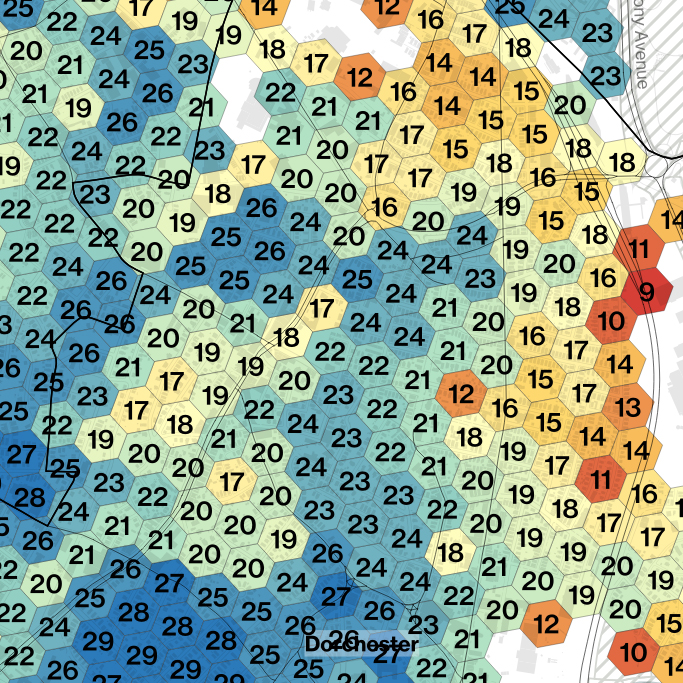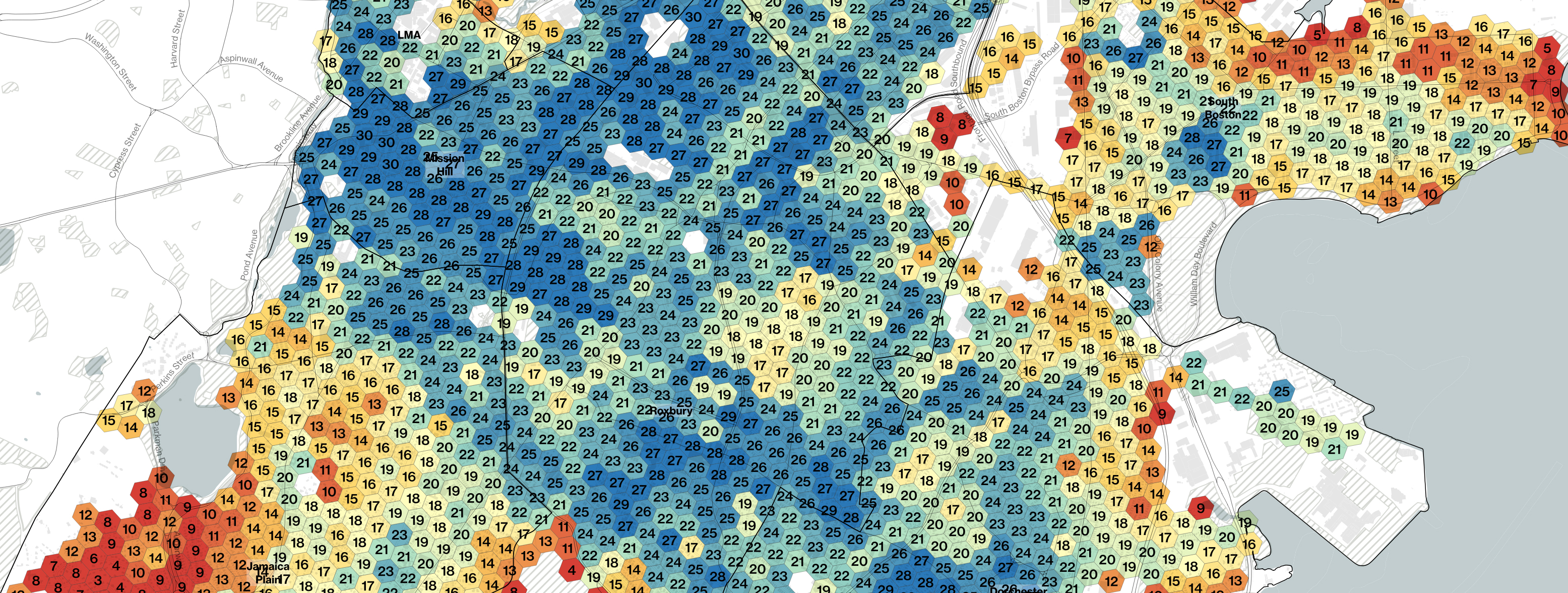Streetcaster, an algorithm to integrate equity into public realm transformations

2022
Supernormal explored an algorithm that integrates social equity as a key variable in systematically prioritizing infrastructural replacements and repairs.
In 2018 the City of Boston Public Works Department (PWD) and City of Boston Mayor’s Office of New Urban Mechanics (MONUM) worked together, and in collaboration with other City agencies and community partners, to develop a new program called StreetCaster, which pioneers a more equitable approach to allocating resources for infrastructure, starting with sidewalk replacements and repairs. Through the program, the City will create new networks of sidewalks in areas that need them most, while simultaneously improving the way that resident requests for repairs through the City’s 311 system are addressed.
This program was a finalist in the Bloomberg Philanthropies 2018 Mayors Challenge. The zones that Supernormal identified are areas that provide critical access to civic assets; that, if well served, help deal with systemic inequity; and that are in physical disrepair. This map-based index is a first pass at a system that weights and prioritizes discrete areas of the city based upon the values outlined above. The hexagons, developed by Uber Technologies, are a system of spatial division that allow us to equalize data across native scales (census tract, block, and street). In so doing, we are transforming Uber’s H3 technology, currently used to optimize their surge pricing algorithms, into a tool of social equity.
In 2019 the city received a grant from Knight Foundation to explore the implications of similar processes for Boston’s future as a “smart city.” Here is one outcome of that work, which we developed to daylight the Streetcaster algorithm and open it up for public exploration.
Elizabeth Christoforetti and Will Cohen
